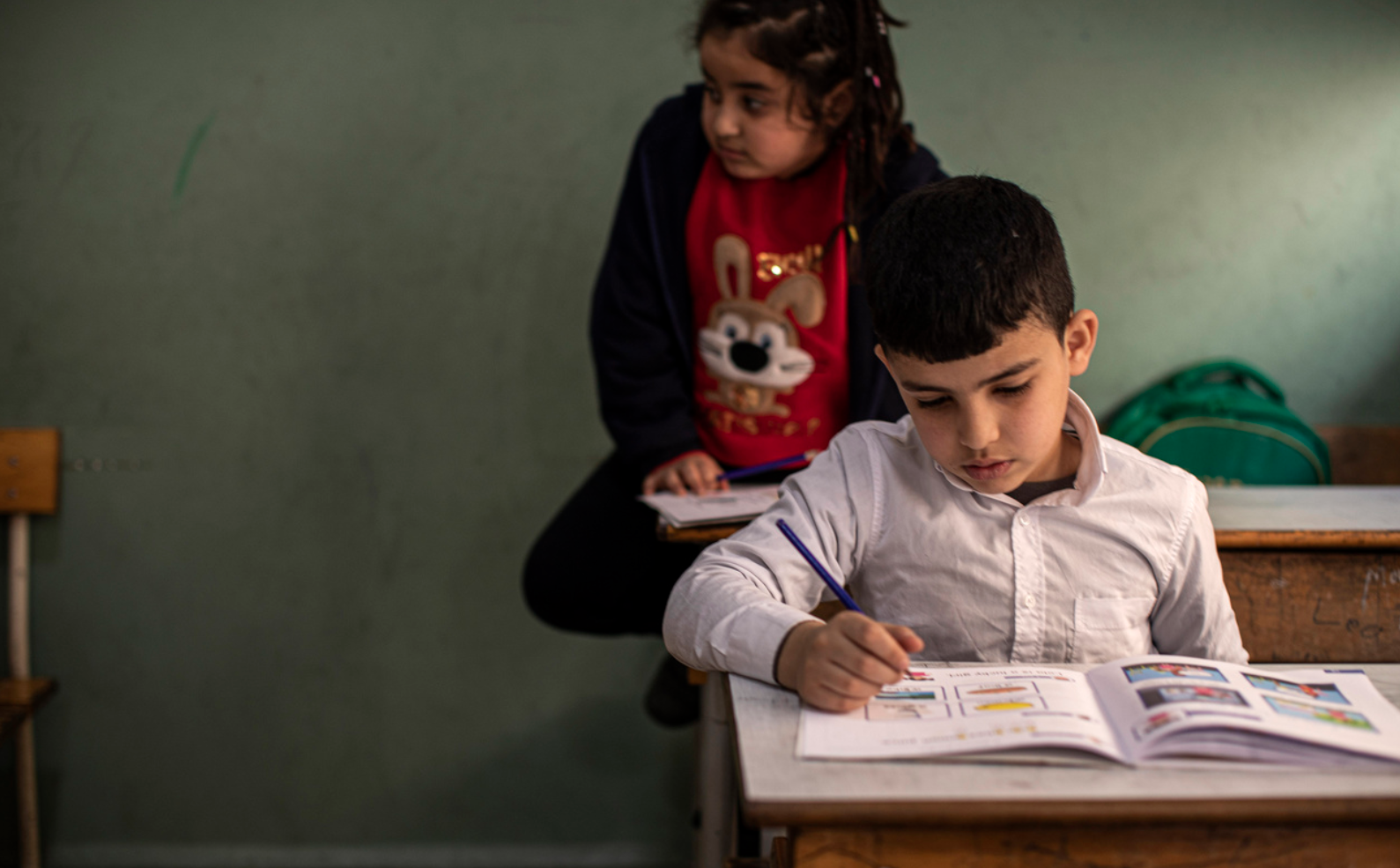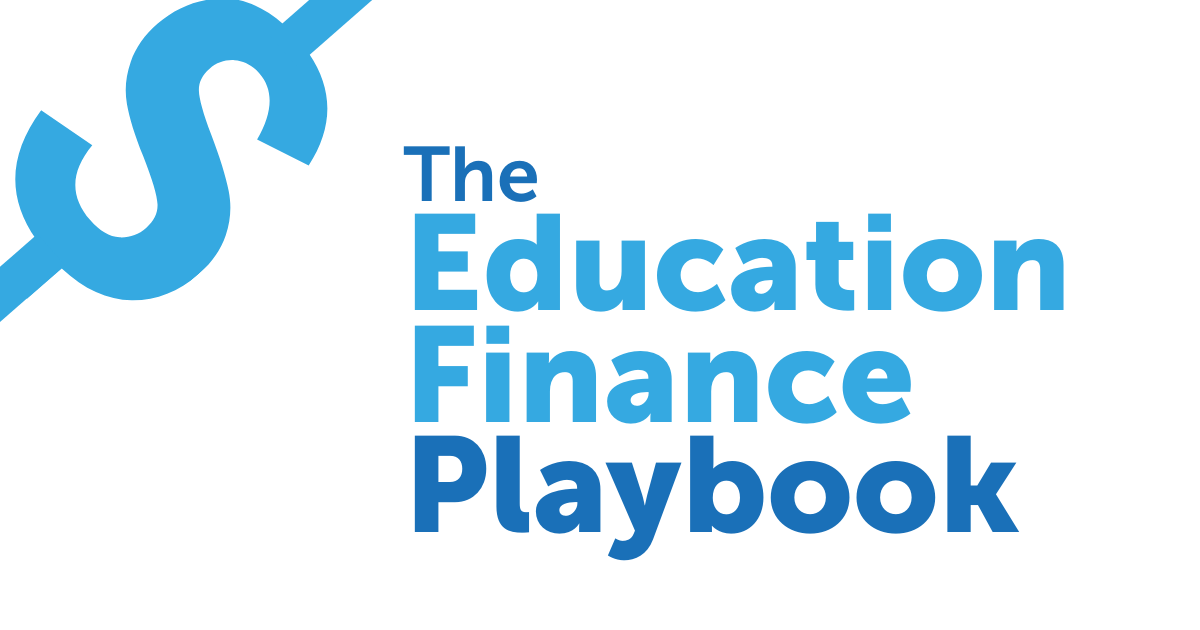
The Education Finance Playbook

A practical guide for governments, donors and philanthropists to fund quality, inclusive education for all by 2030.
Introduction
The scale of the global education crisis is mind-boggling. Even before Covid-19 struck, there were 258 million children who did not have a place in school. It was forecast that more than 50 per cent of young people would not have the most basic reading and maths skills by 2030. Millions would either never set foot in a school or dropped out early.
The impact of pandemic, which at its peak locked 1.6 billion children out of school, has made the challenge of providing quality education even more acute, with an estimated 24 million children at risk of never returning to education. The most marginalised and underserved – children with disabilities, minority populations, low-income families and girls – have been pushed further to the margins.
Contracting economies mean many government budgets will be smaller at a time when the need for investment in education has increased dramatically. Without quality education, the next generation faces the threats of child labour, poor health, early marriage and intergenerational poverty. Drastic action is needed.
Major recovery efforts and stimulus packages are underway to invest trillions of dollars into the global economy in response to Covid-19. Making education a central pillar of global and national recovery packages is a surefire way to reap the greatest financial and social benefits possible, ensuring longer-term equitable and sustainable development. Education is a strategic investment with phenomenal returns, a proven solution which leads to sustained economic growth.
Education is the key to unlocking opportunity for the next generation. Data shows that education unlocks economic recovery, innovation, and climate action. It improves inclusion, antiracism, peace and security, and much more. It has been shown that:

Closing the education financing gap in low and lower-middle-income countries could reduce emissions by 51.48 gigatons (equivalent to five times the annual emissions of advanced economies) by 2050

If all students in low-income countries acquired basic reading skills, 171 million people could be lifted out of poverty.
Yet for development ministries, overseas aid departments and philanthropists searching for the most impactful way to invest resources in the education of the next generation, making sense of the different funding mechanisms and organisations, the costs, and where to invest, can be overwhelming.
The Education Finance Playbook provides that much-needed clarity, and shows how Sustainable Development Goal 4 – equitable and inclusive quality education for all by 2030 – can be achieved. It will require nothing less than a Marshall Plan for education recovery across the globe.
Putting every child on track for education by 2030 will require a comprehensive, unrelenting mobilisation of political will, innovation and resources by as many partners as possible. The challenge is far greater than any one institution’s efforts. It is clear that the current collective efforts of the international community, while well-intentioned, are insufficient for the task at hand. The playbook demonstrates that the current strategy for funding education will leave hundreds of millions of children behind unless we act differently – starting now.
This playbook outlines the scale of the education crisis, the current status of funding and the price tag needed to put the world on course to provide quality education to every child. It maps the global education architecture and identifies the relative importance of various funds as well as their efficiency in delivering money to children’s education.
The playbook identifies a price tag of $75 billion a year, on average, that the international community needs to mobilise to put the world’s children on track for universal education. It recommends a three-point plan to fund education post-pandemic, showing that Sustainable Development Goal 4 is within reach if it is taken seriously and if stakeholders innovate.
It calls for:
- National governments to mobilise domestic resources through equitable taxation, and meet globally agreed budget targets for education.
- Donors, philanthropists and businesses to step up and meet or exceed funding commitments, such as the development aid budget commitments of 0.7% or higher.
- Donors, multilateral banks and recipient countries to innovate, by backing the new International Finance Facility for Education. The
playbook demonstrates that $6.25 billion contributed by donors could make $50 billion of new finance available for education at a time when resources for recovery efforts are at a premium.
The Education Finance Playbook puts the challenge in perspective, drawing on the best
evidence and synthesising information into a digestible format to provide a roadmap to inform governments, donors and philanthropists about how best to make an impact over the next 24 months and beyond.
The Education Finance Playbook is:
- A practical guide: This playbook summarises the headline figures and draws on many reports by our colleagues and peer organisations working to support governments around the world – particularly in lower-income countries – fund and deliver education
- An overview of the different ways to fund education: The playbook draws on empirical analysis about effective ways to support education, priority areas for action in the Covid-19 recovery, and the comparative advantages and efficiencies of various funding pathways, based on publicly available information and certified information from organisations supporting education
- A call to accountable, collective action: For too long the international community has simply accepted that education will be a chronically underfunded sector. The assumption is that anyone reading this playbook already cares about how we get every single child on the planet into quality education. It calls on all stakeholders, including governments, donors, philanthropists, international organisations, NGOS, civil society and business to unite with young people around a set of priorities and concrete steps to hasten progress towards Sustainable Development Goal 4
The Education Finance Playbook is not:
- A comprehensive technical review of the literature: There are many great reports by our colleagues at organisations like Save the Children, UNESCO, UNICEF, the Education Commission, the Global Partnership for Education, World Bank and others with technical analyses about the scale of the crisis, declarations about shared priorities, the effectiveness of policies and interventions, and financial projections. We draw on those reports and documents to provide a top line summary to help navigate the sector
- A guide to making the case for education: Theirworld has produced a resource called “The Key” with talking points and facts to make the case for education. The assumption is that anyone reading this already believes education is important. If you need more evidence to help you convince someone about why investing in education is the key to unlocking a better future and the other Sustainable Development Goals, visit The Key (thekey.theirworld.org)
- A critique of the important work underway: Every single actor highlighted in the playbook – and many more – is doing important work to end the global education crisis, which is bigger than any single organisation, institution or stakeholder. Every institution has a particular contribution to make. It will take everyone working together and doing their part to ensure every child and young person enjoys an equitable and inclusive quality education.
Supplemental documentation
Next resource
